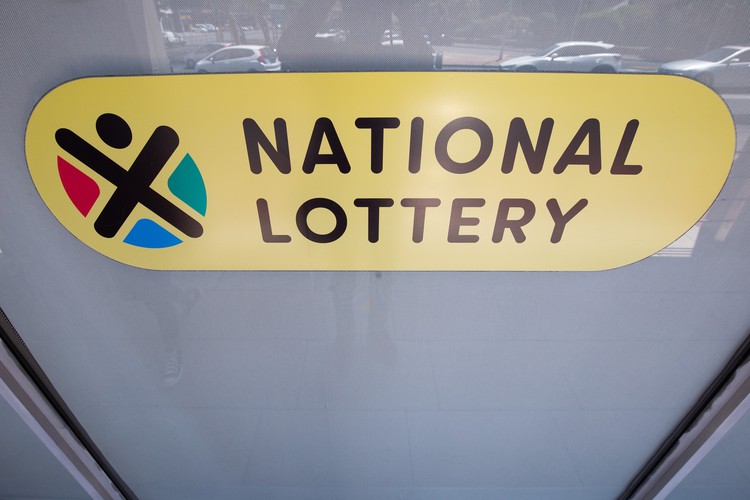Goldrush-backed consortium announced as next lottery operator
Announcement comes after months of litigation by another bidder
Sizekhaya Holdings has been announced as the next Lottery licence holder. Archive photo: Ashraf Hendricks
Sizekhaya Holdings, a consortium partly owned by gambling company Goldrush, has been announced by Minister Parks Tau as the next operator of the Lottery.
The Lottery is currently operated by Ithuba Holdings, whose licence expires on 31 May. Due to delays in announcing the successful bidder, a temporary licence awarded to Ithuba Lottery, a sister company of Ithuba Holdings, will kick in on 1 June. Thereafter, Sizekhaya is expected to take over for a period of eight years.
But there is still uncertainty over when Sizekhaya’s licence will start. The National Lotteries Commission (NLC) has launched an urgent application to change an order by the high court in Johannesburg limiting the duration of the temporary licence to five months.
The NLC says that unless the order is changed to allow the temporary licence to remain valid for a full year, Lottery sales will stop on Sunday, 1 June. Otherwise, it will not be financially feasible for Ithuba Lottery. Sizekhaya needs at least nine months to prepare before it can take over the Lottery.
The licence has been the subject of extensive litigation in the Gauteng High Court, initiated by one of the bidders, Wina Njalo.
Wina Njalo claimed that Trade and Industry Minister Parks Tau had favoured Ithuba by delaying the announcement and deciding to issue a temporary licence. Only Ithuba had the infrastructure in place to qualify for the temporary licence, Wina Njalo argued.
Ithuba Holdings’ licence has previously been extended for two years, making it ineligible under the Lotteries Act to receive another licence. But a separate entity, Ithuba Lottery, which shares directors with Ithuba Holdings, did bid on the licence.
Last week, Judge Sulet Potterill ruled that Tau must announce the bidder by 28 May, and that the decision to issue a temporary licence was unconstitutional. But to prevent lottery ticket sales from grinding to a halt, Potterill suspended her order for five months, enabling the the temporary licence to be awarded for that period.
“It is most unfortunate that this matter has already become the subject of litigation and a judgment of the high court,” said Tau in a statement on Wednesday. “I am seeking legal advice with a view to appealing against the judgment’s findings and orders … With due respect to to the [court], my announcement [of the lottery licence holder] is the result of my undertaking made to the bidders and the court before the hearing of the application.”
Tau did not announce a reserve bidder, meaning there is no backup if the deal with Goldrush falls through.
GroundUp previously reported that Sizekhaya’s leading bid has raised controversy, with parliamentarians from the EFF and BOSA questioning how the bid was awarded.
Sizekhaya is led by KwaZulu-Natal businessmen Moses Tembe and Sandile Zungu, who is the owner of AmaZulu Football Club. Zungu ran for the ANC KwaZulu-Natal chair position in 2022 before dropping out.
Sizekhaya’s tech partner is Genlot, which operates the Chinese lottery — the second biggest in the world. Based in Shenzhen in China, Genlot is involved in several other lotteries around the world, including Nigeria, Ghana, Kenya, Brazil and Jamaica. The company has an annual turnover of $60-billion in “sales processed” and has a 19% “global market share”, according to its website.
Support independent journalism
Donate using Payfast

Don't miss out on the latest news
We respect your privacy, and promise we won't spam you.
Next: Tired of waiting, Limpopo villagers lay their own water pipes
Previous: Lottery sales will stop on Sunday unless court order is changed, says NLC
© 2025 GroundUp. This article is licensed under a Creative Commons Attribution-NoDerivatives 4.0 International License.
You may republish this article, so long as you credit the authors and GroundUp, and do not change the text. Please include a link back to the original article.
We put an invisible pixel in the article so that we can count traffic to republishers. All analytics tools are solely on our servers. We do not give our logs to any third party. Logs are deleted after two weeks. We do not use any IP address identifying information except to count regional traffic. We are solely interested in counting hits, not tracking users. If you republish, please do not delete the invisible pixel.

